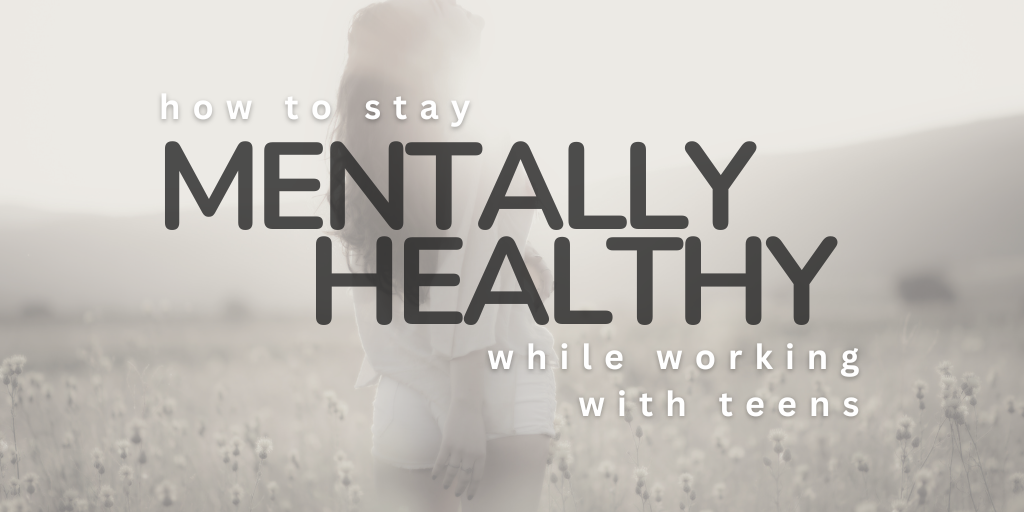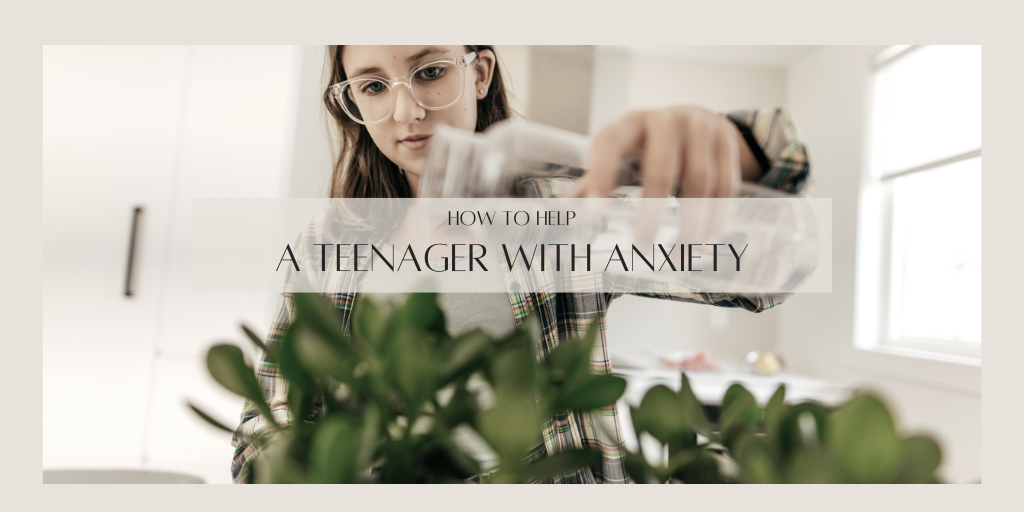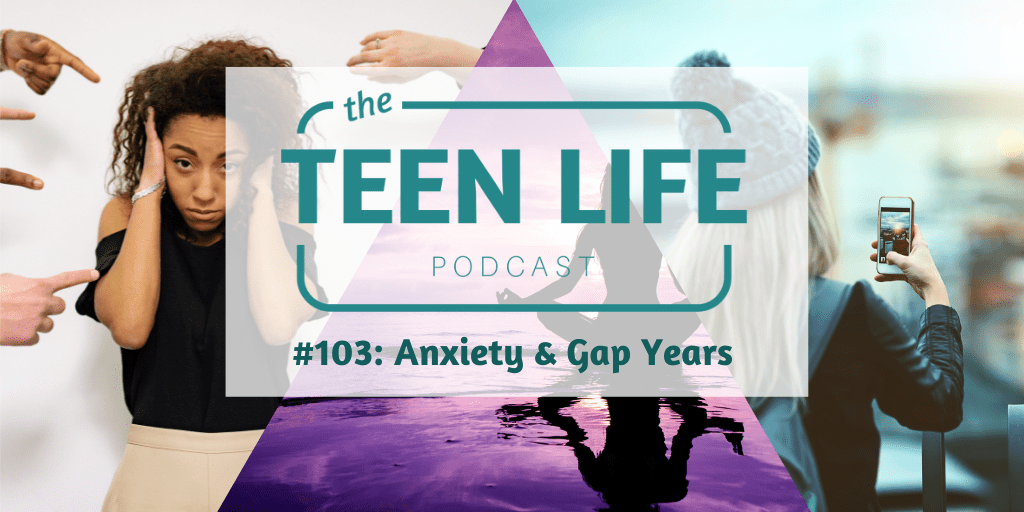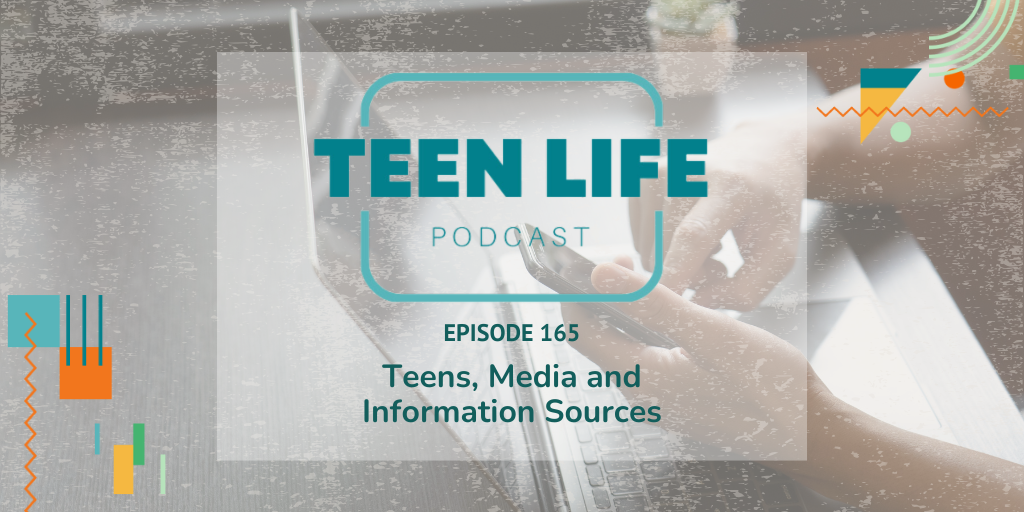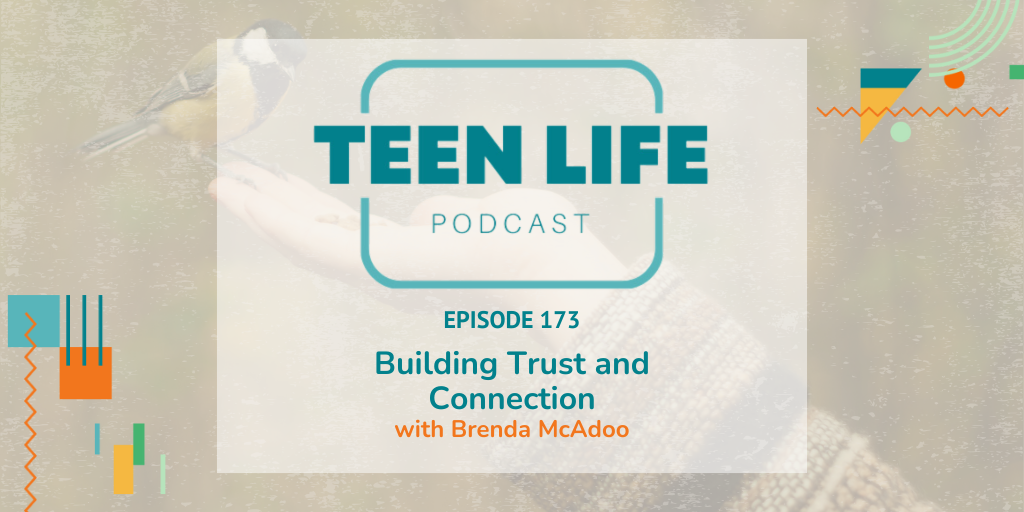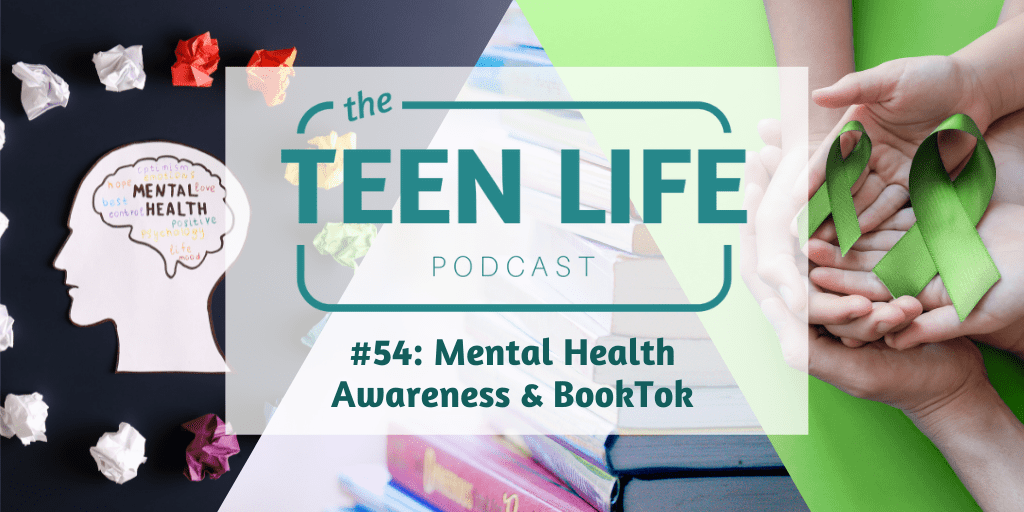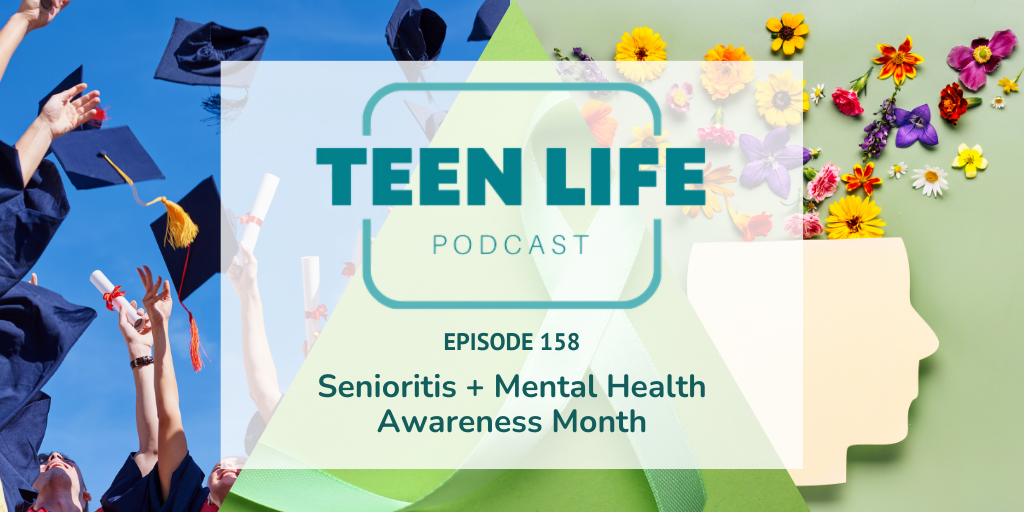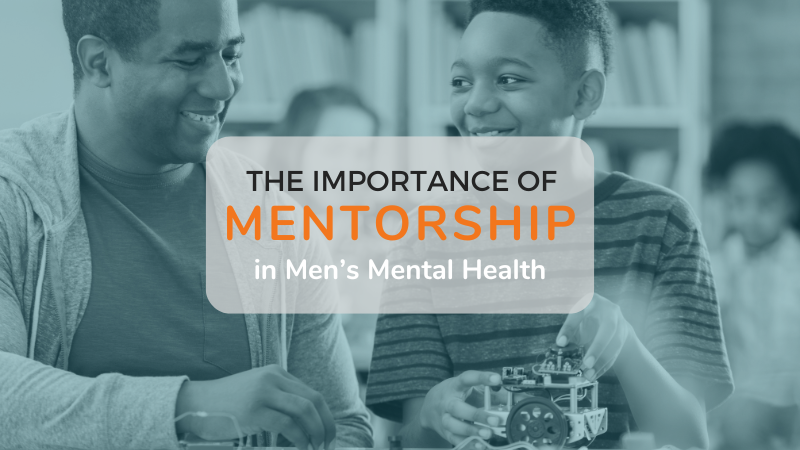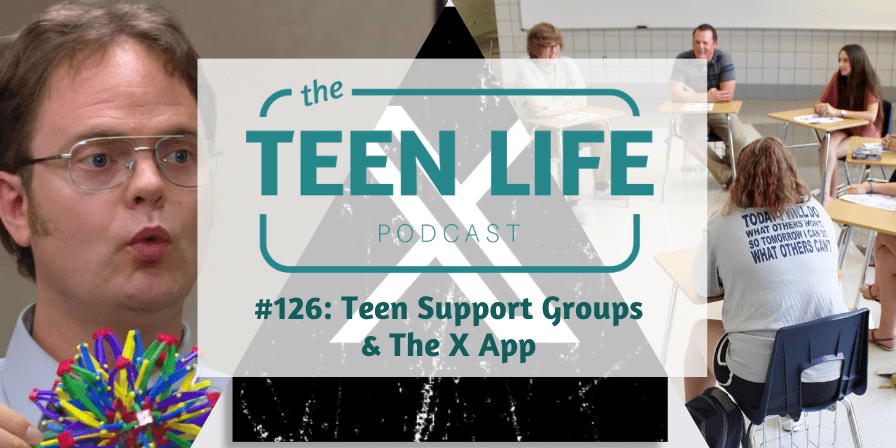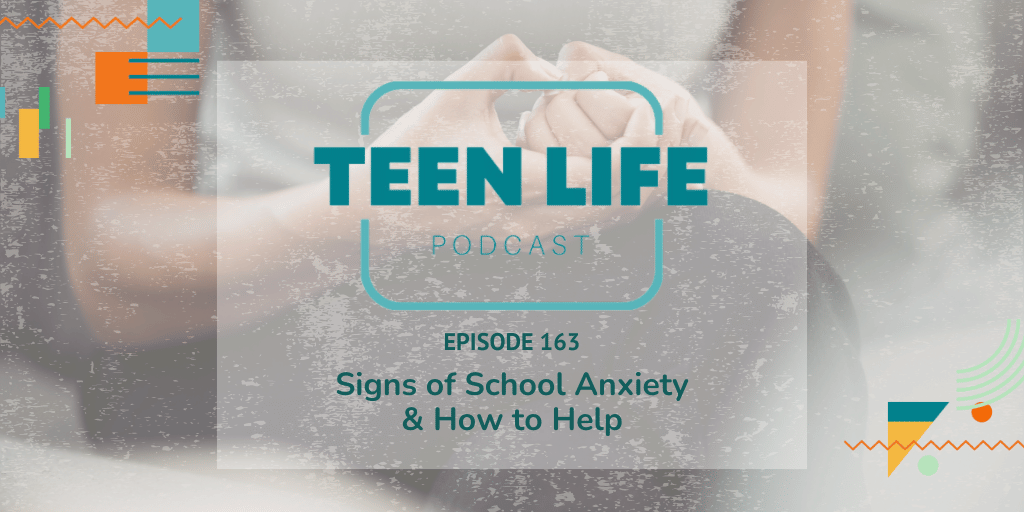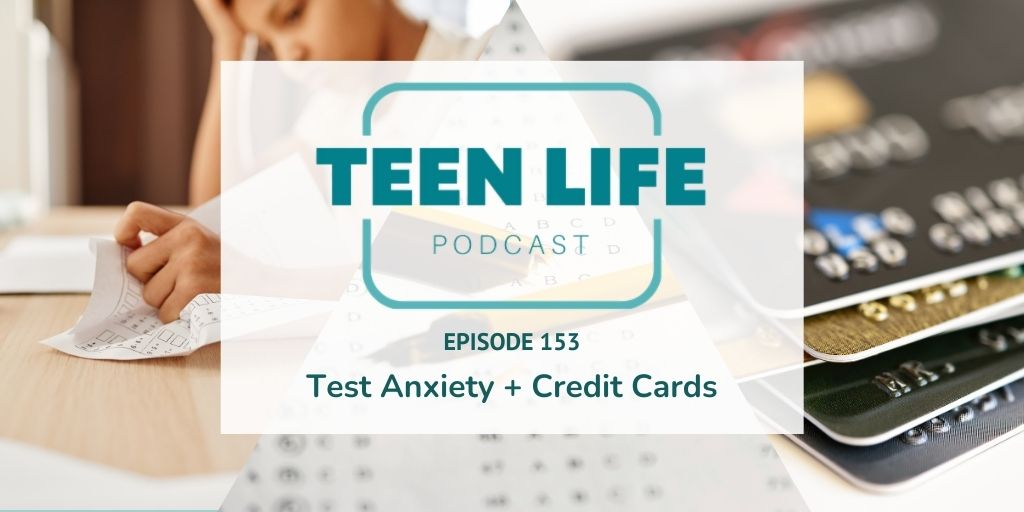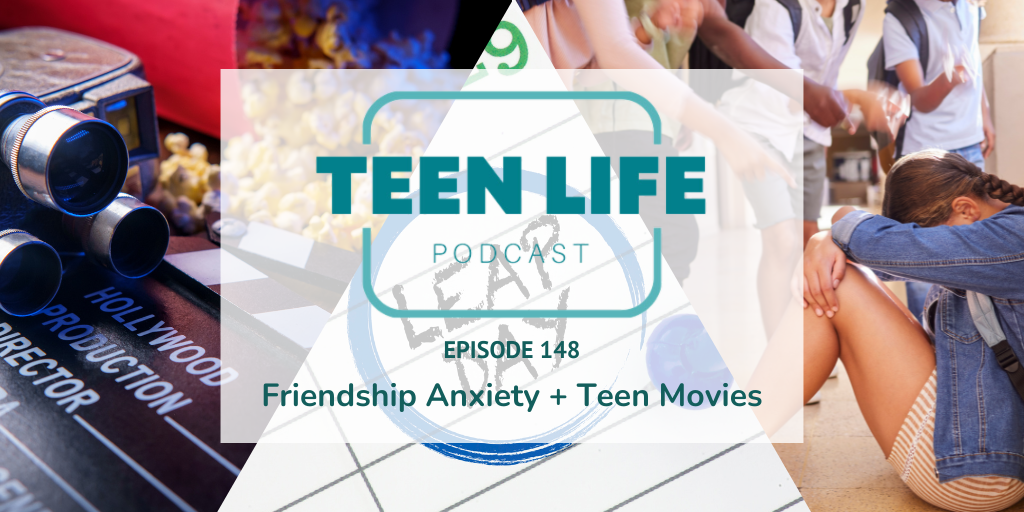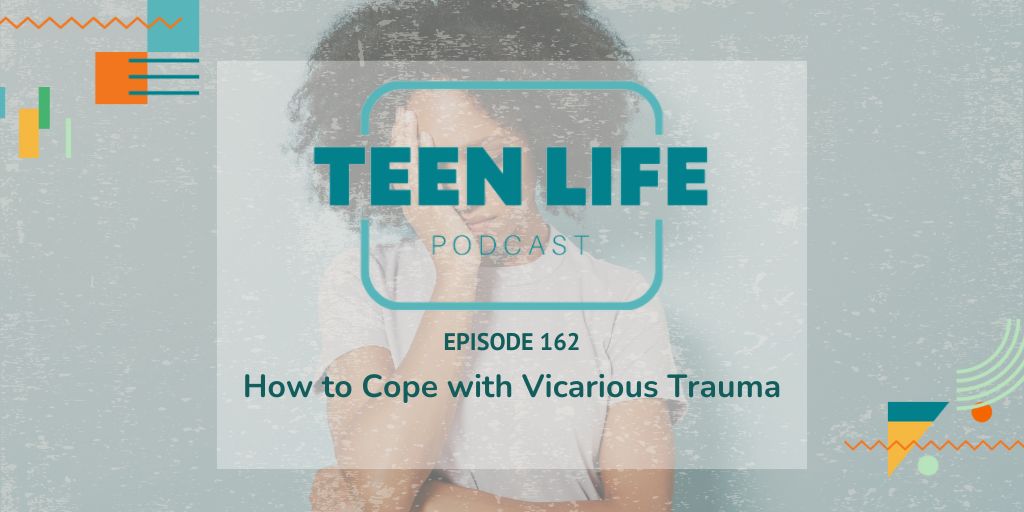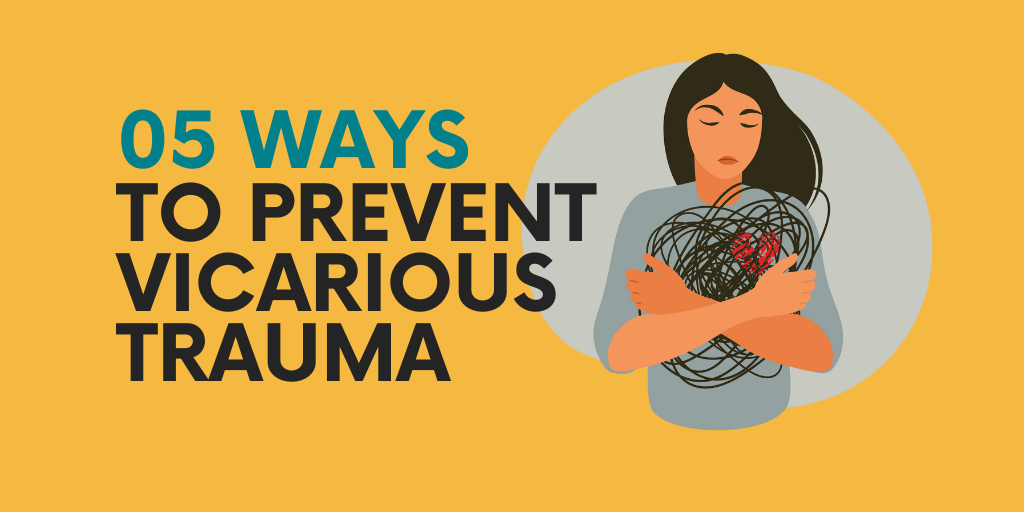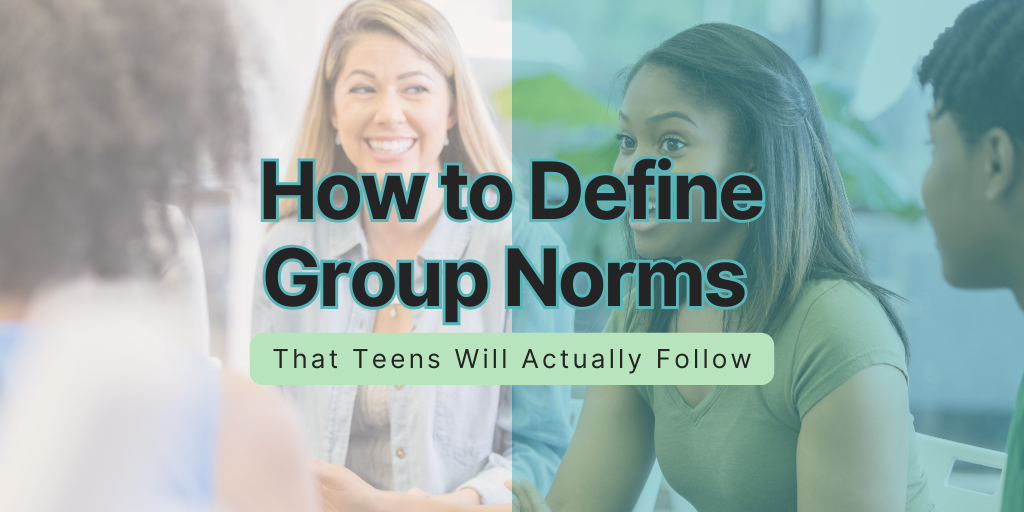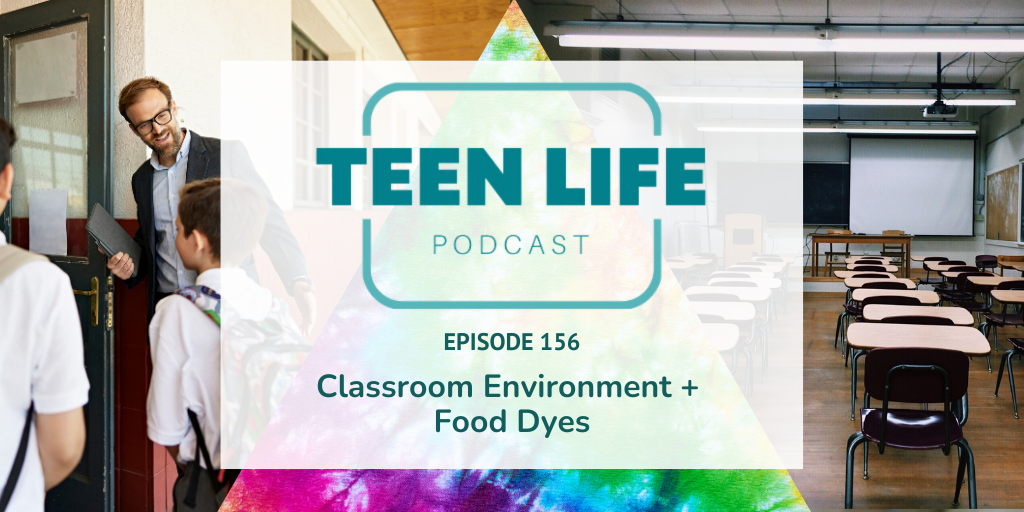Tobin Hodges (00:00)
to start us off. Love it.
Karlie Duke (00:02)
Yeah, nice and light.
What is vicarious trauma and how can I cope with it? A nice light question to kick off this podcast season, new format, whatever you want to call it. So guys, what do we think about this? Yeah, welcome back.
Tobin Hodges (00:23)
Yeah, welcome back. Welcome back. Hope you’re buckled up while you’re listening to this. So now let’s talk about trauma.
Caleb Hatchett (00:24)
Yeah, yeah I Hope your summer was great, you know, let’s let’s get into Vicarious drama. Yeah
Karlie Duke (00:35)
For real, I feel like this is such a big topic, especially with the people that we work with, especially anyone who is around teenagers, who’s working with teenagers to not take on what they are bringing to you and what you’re like walking through with them is really difficult. just, mean, I guess the first place to start is what is vicarious trauma, which…
Caleb Hatchett (00:40)
Mm
Tobin Hodges (00:40)
Sure.
Karlie Duke (01:00)
One of the definitions that I saw that I liked is it’s the experience of absorbing others pain in times of their distress so deeply that it affects your own well -being.
And so I think that’s like the key part of it’s not just empathy, because empathy is a good thing. We want to have empathy with our students, but when you’re like feeling their feelings and then like it’s impacting you and your health, that’s where it becomes a vicarious trauma. That’s kind of a bigger deal.
Caleb Hatchett (01:30)
great.
Tobin Hodges (01:34)
Yeah, I think that this is something that like I do quite heavily. This like I, I want to fix things like I’m a people pleaser and I want to fix people and fix things. And so like when things are hurting and things are not going the way they’re supposed to, like, this is something that I actually like, like do a lot. And so sometimes it works for my favor. Like that, think is one of reasons why I’m doing what I do for a living. But sometimes it’s super does not like, especially like
Karlie Duke (01:45)
Hmm.
Tobin Hodges (02:01)
I don’t know if you guys like, do you all ever like read the news and like want to fix everything and just kind of get mad when you can’t like, like that’s like, I actively avoid the news for many reasons, but that’s one of them is like, I feel like whenever I, whenever I start reading about other people’s issues that are, that are things out of my control, it just stresses me out. And so, yeah, I know that that’s might be minor compared to what some people deal with with this stuff, but yeah, it’s, definitely something that I, that I cope with on a daily basis for sure.
Karlie Duke (02:19)
Mm -hmm.
Caleb Hatchett (02:28)
I think like for me it’s kind of weird because I’m very much the opposite and like even growing up like you know in college like going like in psychology classes going over like here are the signs of psychopaths and You know like they feel no emotion or like the emotion of others. I’m like this me do I? And I don’t think it is okay. I don’t think I don’t think I’m a psychopath, but I’ve just like I’ve that’s I’ve been able to be there for people
Tobin Hodges (02:46)
Ha ha!
Karlie Duke (02:47)
That’s horrifying.
Caleb Hatchett (02:56)
But I, for whatever reason, just almost to like a negative, never take their emotions on myself.
Karlie Duke (03:03)
you
Caleb Hatchett (03:05)
You know, of like, to where I have to work hard to be empathetic, to sit there and be like, man, I’m feeling what you’re feeling. But I don’t know, for me, it’s just like, I’ve been able to keep those things separate. you know, like even my wife, that’s one of the reasons she was a psychology major, wanted to be a psychologist. And one of the reasons she said, I don’t think I can do that. It’s just cause she’s like, I don’t know if I can hear and take on these people’s problems and know I can’t fix that for you.
Karlie Duke (03:28)
Mm -hmm.
Caleb Hatchett (03:34)
And you know, that’s something that she really struggles with because she’s really empathetic and you know, taking on other people’s things that they’re going through and being like, man, now, now I’m feeling this. And I don’t know for me, it’s kind of nice because of where I am and having to be there and counsel for students, things like that. But I don’t know, I guess I can give an interesting perspective for anyone who feels like me and talk about how can maybe we be more empathetic and feel
Karlie Duke (04:00)
Hmm.
Caleb Hatchett (04:03)
the things that the people who are coming to us need us to feel in a way.
Karlie Duke (04:09)
I also think before we kind of get into some of the signs, I do think something that is really interesting too is like the way social media plays into this. For example, I’m more closely to Tobin. Like I feel things and I will also find myself sometimes late at night, like going down a rabbit hole if I found this family that had this tragedy happen to them. And I will watch every video and get every story. And then I’ll look up and it’s been like hours and I’m like crying about this family that I’ve never met.
Caleb Hatchett (04:16)
Mm
Karlie Duke (04:39)
And then it’ll like keep me up and I’ll be thinking it’s a whole thing. One time I like Googled symptoms that I thought maybe one of my kids had based on like this rare disease that I’ve watched on social media. But all that to say, I do think social media makes this a bigger deal because it’s not just while you’re at school or while you’re in front of someone. And for our teenagers too, they’re not just being traumatized anymore. We’ve talked about this, I think on the podcast before.
Caleb Hatchett (04:57)
Yeah.
Karlie Duke (05:07)
They’re not just being traumatized by what’s right in front of them. They also are being exposed to stuff 24 seven that can cause almost like secondary, maybe secondhand trauma.
Caleb Hatchett (05:18)
Mm -hmm Yeah Which I mean I yeah like I I think that’s a good way to also put this of I Remember on the phone call you’re like vicarious trauma. I’m like what? What so yeah, I don’t know secondhand trauma you just feel it like feeling Feeling that and so like what what the signs, you know, like maybe you’re like, okay, this is something I struggle with How would I know?
Karlie Duke (05:23)
I like that.
Hahaha
Mm
Caleb Hatchett (05:43)
Some of the signs that you’re experiencing is just emotional exhaustion, right? I feel like that one’s obvious intrusive thoughts you can mental like mentally Feel like hard to focus. Maybe you’re just being more negative panic attacks anxiety depression and Physical symptoms as well like headaches changes an appetite or eating fatigue or difficulty sleeping and so it’s just interesting that like those are almost signs of someone experiencing a trauma or anxiety and it’s not
even you experiencing that trauma.
Karlie Duke (06:16)
Yeah, and I think a good marker is if you’re going home at night or you’re laying in bed at night and you keep thinking about that and you can’t like walk away or put up a boundary with something that you’ve heard from a student, that might be a time to start asking questions of is this something that I’ve taken on where now I’m also experiencing distress or it’s affecting my wellbeing, it’s affecting my family life, it’s affecting my sleep. All of those things are good questions.
Caleb Hatchett (06:21)
Mm.
Karlie Duke (06:45)
to ask. Now, I wrote a blog post about this for teen life and so I’ll link that. That kind of goes a little deeper on some of these, but one thing that I kind of want to like put out there is maybe a shift in your thinking is you have to take care of yourself to help others. And like we all know the classic when you’re sitting on an airplane and the flight attendant comes up and gives the whole speech and does the like before you
Caleb Hatchett (06:46)
Right.
Karlie Duke (07:14)
help others put your oxygen mask on yourself. And so use that analogy for this, because I think as helpers, as people who love other people and who are in helping roles, whether you’re in a school, a church, or just someone who loves teens and has them in your home all the time, you constantly want to help. And sometimes that means putting yourself second. But if you aren’t well, you’re not going to be able.
to help them the best way you can.
Caleb Hatchett (07:45)
Yeah. And it feels so wrong, like being in that situation, right? Of, like if this is something that you feel, like, feel like you are.
Karlie Duke (07:48)
Mm
Caleb Hatchett (07:56)
very much a type of person who wants to help. Right? Like if, if you’re feeling empathy to the point where it’s affecting you that, that man, that’s great. This is something about you of wanting to be there for others. And so my guess is you’re a type of person who is going to always put yourself last and like, you’re not doing you any good and you’re not doing the people you’re helping any good either. I mean, if, your comps empty, you don’t have anything to pour out into others. And it’s just so draining on, on you and,
Karlie Duke (08:14)
Mm
Caleb Hatchett (08:26)
and then eventually, hopefully not, like just burnt out and, and so, yeah, then you can’t help anybody. And so it feels wrong, but it really is so true. You have to make sure you are in a place to help others before you can. And so like, don’t feel bad about putting yourself first or setting up boundaries and be like, man, I just, I love you. I want to be there for you, but I can’t have this, this conversation with you right now.
Karlie Duke (08:40)
Mm
Mm
Caleb Hatchett (08:53)
because it won’t do either of us good. It feels so the opposite of helpful, but in the long term it is.
Tobin Hodges (09:02)
Well, and just like setting boundaries, a lot of the stuff is just finding balance too. So like, you know, the worst version of me is I carry everything and I, and everything else that it’s, you know, my family and myself takes the back burner and the worst version of Caleb is he’s oblivious and he’s in a bubble. Like, and you don’t, you’re not, you’re not ever advocating or taking on things if you don’t for championing people that you should be championing. And it’s just, it’s just finding a balance. I mean, it’s, you know, like.
Karlie Duke (09:25)
Hmm.
Caleb Hatchett (09:26)
Yeah, right.
Tobin Hodges (09:31)
there is something to be said about…
having these conversations and setting a, like setting a, I don’t know, goals on the right word, but setting a, a vision of what you think that’s going to look like in helping these people. And, you know, one of the things that happens a lot in these situations is like Karlie was saying, you get, you get sucked into it and then you end up being part of the problem in that situation. I mean, that, that goes with everything with trauma is that you don’t want to add to that. You have to be able to, to help and be a
Karlie Duke (09:55)
Hmm.
Tobin Hodges (10:03)
part of the puzzle and not part of the, you know, the suck on it. Like you can’t, you can’t like be the thing that’s adding to the, to the trauma. And so it’s just, it’s not even just about your own self. I mean, it is like, yes, it is important to make sure that you are not getting like mentally exhausted in having intrusive thoughts, kinds of things. But it’s also like, there’s a point where like, like, think, I think like funerals and deaths are a great example of this, of when someone has experienced loss, like, yes, they need
Karlie Duke (10:29)
Hmm.
Tobin Hodges (10:33)
people and yes, they want people and they are going through trauma, but also there’s a, there’s a limit that they can handle. Like, like the amount of people that show up that at houses and in the ones that will bring in a casserole and stay for three hours because they think that they’re being helpful, you know, in that situation. like, I mean, it’s all about when, when we see someone going through vicarious trauma or going through trauma, have to figure out what is working for them and how can I be a piece of that puzzle instead of trying to solve it and fix it and do all that kind of stuff.
Karlie Duke (11:03)
Hmm. Well, we’ve said several times, like setting boundaries is important, but say you’re listening and you’re like, that’s my job. I can’t just be like, sorry, I’m done. I’m walking out. And so I want to talk a little bit about what does it look like in a school setting? What does it look like in a church setting? What does it look like maybe even in your own home of how can you set boundaries well? Now I will say upfront, if you are like,
Tobin Hodges (11:14)
Yeah.
Caleb Hatchett (11:14)
Yeah.
Karlie Duke (11:34)
a licensed or like practicing counselor, you have different, and you know this, you have different rules set on you of like confidentiality and what that looks like. But like one of my first things maybe as a boundary, if you don’t have that same thing, maybe ask that student, hey, can I bring in another trusted adult into this conversation with us? Or hey, do you mind if I, I’ll keep it like anonymous, but do you mind if I share this with someone just to get a different perspective?
where you’re not the only person who’s having to carry this burden for this student. And so like I said, there are different rules if you’re like a counselor, but if you’re a teacher and a student comes to you with something, be like, hey, is there another teacher that we can pull in? Hey, is there a trusted parent or someone outside of this room that I can go with you and we can have this conversation together? And that way you’re kind of sharing the load a little bit and not feeling like, man, this is…
all on me and I can’t talk to anybody about it and I’m carrying that.
Tobin Hodges (12:34)
Well, in a school setting, if you’re not a counselor, that is the common best practice anyway. You shouldn’t be working with kids one -on -one in those settings. that’s, that’s how, you know.
Caleb Hatchett (12:34)
Mm.
Karlie Duke (12:40)
Hmm.
Tobin Hodges (12:47)
things get said and done that shouldn’t be done and like, or people assume that, you know, that relationships are performing that are inappropriate and that kind of stuff. So, yeah, from a school setting, like when you set boundaries in school, that’s, that’s one big one is, you know, bringing other people in, I would say like peers, depending on the, depending on the content, you might bring a peer in and have them walk alongside a peer in a situation. especially if you’re, if you’re talking about teenagers,
Karlie Duke (12:49)
Right.
Hmm.
Tobin Hodges (13:14)
The other boundary that, that I’m again, wasn’t great at as a teacher and probably one of the reasons why, like, I’m not sure I would be great as a, as a school counselor is you have to learn how to leave it like in the building and not take it to your house to an extent. Like obviously like you can’t like that, that’s kind of goes back to what Caleb was saying. That feels kind of cold, but
Karlie Duke (13:28)
Mm -hmm.
Tobin Hodges (13:36)
If you are constantly carrying the burdens of what’s happening at school home with you, like that ends up affecting your home life. so that that’s one boundary that’s, that’s hard to do, but that’s kind of important of, Hey, when I walk out that door at four 35, seven, whatever it may be for teachers, like that stuff kind of has to, you know, I’ll say 80 20 has to stay in that building because you can’t, you can’t take that stuff everywhere with you for sure.
Caleb Hatchett (14:06)
I think like even going with that like from, I don’t know, I think about it from like a church leader perspective of like, you know, if you’re having students, small group, things like that around your home, I think part of it is just setting a boundary of like the environment those conversations are happening, right? Because if it’s like,
even in your own living room having these conversations, a lot like a lot of conversations have had, right? But it gets almost even harder mentally to separate those things, right? And so I don’t know, just setting up an environment of being like, man, I want to have this conversation, but like, almost, I don’t know, my mind almost goes to like,
you know, a heated argument. It’s like, man, let’s just take some, some time. And, some of those conversations need to be happening right there in the moment, right? Because sometimes the students are feeling they need to get whatever’s they’re experiencing or whatever’s on their chest off their chest. And so, I don’t know, part of it is I think reading the situation, but also just knowing that, can this wait and can we, it be more productive in a different environment or whenever we’re both able to approach it from the same side, instead of just spur of the moment you’re caught off
or like, and you’re just feeling the weight of it all. I don’t know. That’s, where my mind goes.
Karlie Duke (15:15)
When I know we have people listening to who teenagers have their cell phone numbers and or follow them on social media and can get in touch with them. And if you are walking through a difficult challenge with a student, it is okay to tell that student unless it is an emergency, hey, I will get back to you tomorrow. Hey, I’m with my family right now. Hey, I’m about to go to bed. All can I call you at this? If you need to set a time, hey, can I call you tomorrow?
Caleb Hatchett (15:34)
Yeah.
Karlie Duke (15:44)
at 3 .30 after you get out of school. Or like read that text of like, hey, I saw this, I’ll respond tomorrow when I’m not at home. Like setting those boundaries and honestly, it’s really good for teenagers to hear that, to have that model to them of like, okay, this person cares about me because they acknowledged me, but they also are putting their family first or they’re putting their own wellbeing first. And that’s something that I can do too, moving forward.
Tobin Hodges (15:53)
Mm
Karlie Duke (16:11)
of the next time a friend comes to them and they’re not in a head space to take care of it, they’ve had that model to them of like, hey, I can’t respond to this right now, but let’s set a date and time to talk about this or I’ll come over as soon as I’m done with this and we can have that conversation. Now there are certain situations that are more extreme where you might have to answer right then, no matter what, if you’re walking with a student who is like having suicidal thoughts or stuff like that. But I mean,
Adults know this. You know what can be answered at a later time and said in a way that still makes a student feel important.
Caleb Hatchett (16:48)
Think yeah, like even just like responding right and communicating that with them Like I like you like what you said goes a long way of it. It helps model for them, right? Okay, here’s boundaries just needs to be respected but like also answering right away being like hey Is it okay like in this way and setting a date and time gives them something? To look forward to cling on to and like you said like no that they’re not just ignoring me Like I’m not just a burden on them because I’m sure that’s what a lot of teens feel right? That’s a lot of like what I feel if I’m ever
Tobin Hodges (16:48)
It does.
Karlie Duke (16:53)
Mm
Mm
Right.
Hmm.
Tobin Hodges (17:16)
Mm
Caleb Hatchett (17:18)
You know talking to somebody about what i’m going through like I don’t want to put a weight on you and so Right, just read constant reassuring of like hey, you know, like i’m i’m here for you and I want to be there with you but making sure that they’re here to heard and loved even because I always default me talks about this whenever we talked about not reading texts or like communication because I have like 1300 Unread text messages a lot from group messages
Karlie Duke (17:44)
Still?
Tobin Hodges (17:46)
He said like, he said like 300 last time. just said 1300. So it’s gotten higher.
Caleb Hatchett (17:46)
It’s a group messages.
Karlie Duke (17:47)
What’s the number? What’s the number?
What’s the number?
Caleb Hatchett (17:52)
1400,
Tobin Hodges (17:54)
Good grief.
Karlie Duke (17:55)
Text messages? Hang on. Text messages?
Tobin Hodges (18:04)
then get out of the group.
Karlie Duke (18:05)
So just open it and take…
Caleb Hatchett (18:10)
It’s a lot. Anyways, just if you’re like me, bad at communication, a lot of like what I feel is like, that’s like a thing I have to do. So I’m to push it off, but like.
Karlie Duke (18:11)
Okay, sorry.
Caleb Hatchett (18:19)
and especially like with teenagers, with people that you’re there for, respond right away. And even if it’s a, can’t right now, it’s better than just ignoring it, I promise. And so it’s as you’re doing yourself such a favor by even right away being like, even if it’s no, and that feels wrong, and you don’t want to tell a kid no, it’s so much better than just ignoring it. So.
Karlie Duke (18:20)
Hmm.
Mm
Or even saying like very clearly, hey, I want to be able to give you my full attention, but I’m in the middle of something right now or I can’t tonight. Like letting them know in that way, hey, I want to give you my full attention and that can happen at this time. I’ll get back to you.
Caleb Hatchett (18:54)
Yeah. Yeah. So let’s have a no and my god, right now.
Karlie Duke (18:59)
Yes, exactly. Okay, so my other thing kind of just to take away of like something that you can be doing if you’re listening right now is I want you to have some self -awareness as we’re talking through this and ask some questions. And one of them is I think a classic teen life question is just how am I feeling this week? We use a scale of fist to five a lot in our groups with students. So that was you would hold up
a number to yourself, which seems silly, but like from fist to five, fist being like my week is terrible, five, it’s the best week ever. But just kind of checking yourself, like how am I feeling right now? How am I personally doing? Also some check -ins about trauma, like am I thinking about someone else’s situation after I leave work or when I’m trying to go to bed or when I’m with my family? Is someone else’s trauma triggering my own experience? So sometimes,
If you have had a traumatic experience in your past and a student is talking about something similar, it can bring up all these feelings of something that you went through when you were that age or that you have gone through in your past. And so not only are you like vicarious trauma, but it’s also bringing up past trauma. And so kind of check in about that. And then finally, like, what can I do to take a break or get support this week?
So maybe that looks like talking to someone, maybe you honestly need to also see a therapist or a counselor or talk to a professional of like, hey, this is bringing up feelings and emotions and signs that I don’t feel like are healthy for me right now. Or maybe it’s I’m gonna take a day off work and I’m gonna lay in bed and read a book all day or I’m gonna go get a massage or I’m gonna go to lunch with friends and just get away from it.
for little bit, but do something this week that will help you get support and maybe just feel like you are in a better head space to help teenagers moving forward.
Caleb Hatchett (21:03)
Yeah, I love that for like, am I feeling this week of just kind of your self inventory of like, that’s one of the last things like I think of is me and how like, let’s let’s let me slow down for a second. And like, how am I really doing? And, you know, take care of yourself first. That kind of goes back to what we said. And then like, I think, yeah, just finding your own support is so huge, especially whenever you’re there for so many other people, like you need your own support. And especially in situations where
Karlie Duke (21:07)
Mm
Hmm.
Caleb Hatchett (21:32)
you’re having to be there for someone else’s trauma, hear that out and being that with them. Like, like we kind of said earlier, it can kind of feel like it’s just me.
Like they’ve trusted just me and it’s up to just me. can’t tell anyone. I don’t want to betray trust. And you know, not even necessarily finding, you know, support or someone to be like, man, here’s this. There are situations where you need to invite people in, just supportive. Hey, like I just, need just support for, for having to be there for, other people and just, just things, find ways and know yourself of ways that fill your own cup. so that way you can pour down to others.
Karlie Duke (22:02)
Yeah.
Maybe find a friend that y ‘all can each week ask each other, are you doing? Maybe that’s a coworker or another friend and you could be like, hey, I’m going to ask you every Monday and every Friday, how you doing? And I want you to do the same so we can check in on each other moving forward. Well, that’s a wrap for this episode in this question. Make sure you subscribe on YouTube or wherever you listen to podcasts so that you don’t miss any episodes coming up.
Caleb Hatchett (22:13)
Yeah.
Tobin Hodges (22:27)
Yeah, that’s good.
Karlie Duke (22:39)
We’ve got some really good ones planned out through this fall and then even maybe an extra special bonus episode coming around Christmas time. And then I just want to repeat again, if you have a question that you want to submit that you want us to talk about on this podcast, you can reach out on social media or email us at podcast at teenlife .ngo. We’ll see you next week.
